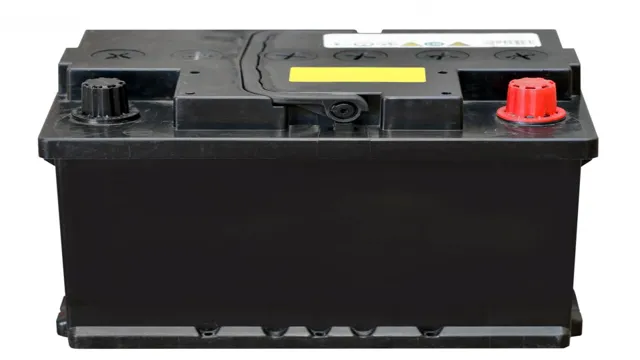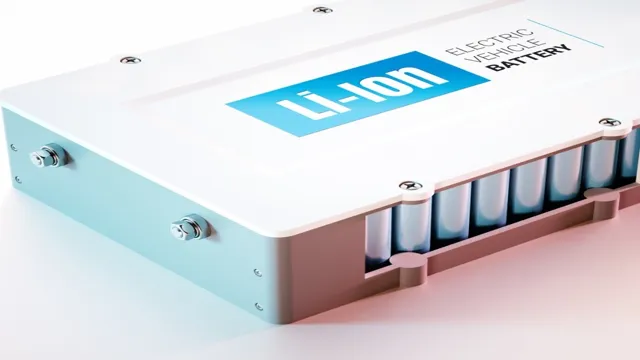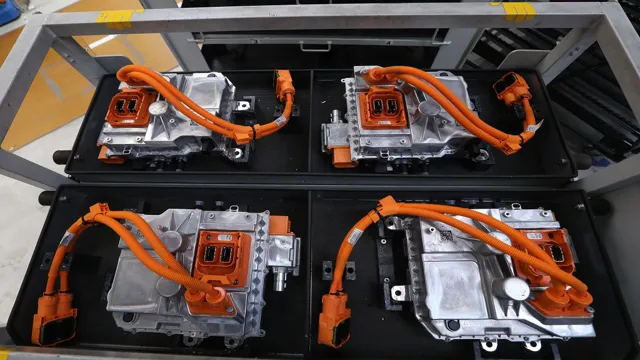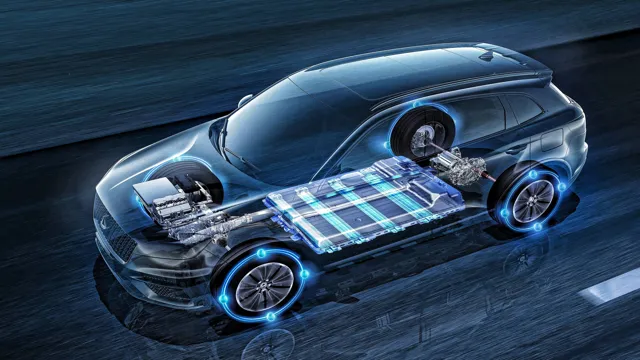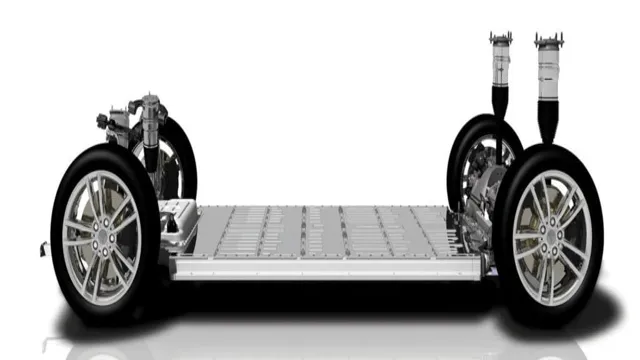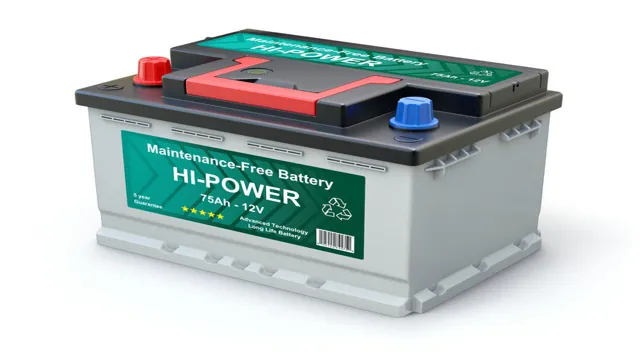10 Breakthrough Technologies for Better Electric Car Battery in 2021
Electric vehicles (EVs) are becoming an increasingly popular choice for eco-conscious drivers, thanks to their low emissions and high performance. However, a significant challenge still remains in the EV industry: battery life. Many EVs can only travel a limited distance before needing a recharge, which can be inconvenient and time-consuming.
That’s where the new technology of revolutionizing EV batteries comes in, promising to change the game and make EVs even more practical and accessible than ever before. Imagine being able to drive your EV for hundreds of miles on a single charge, with no need for frequent pit-stops and recharging. This breakthrough technology in EV batteries is making that a real possibility.
Not only is it going to make traveling in EVs more convenient, but it will also reduce the carbon footprint of driving, making the world a better place for future generations. This new form of batteries is making headway in the market due to its groundbreaking stability and longevity. These batteries sustain their effectiveness over many charge cycles, which means drivers will not have to worry about replacing them every couple of years.
Combining durability and performance, revolutionizing EV batteries is set to change the future of the EV industry. So, what is revolutionizing EV batteries, and how is it different from existing battery technology? We delve into the science behind these cutting-edge batteries and the impact they will have on the EV market. Join us for an exciting journey of discovery down the road of the future.
The Need for Better Batteries
As the demand for electric vehicles continues to rise, the need for better electric car batteries has become increasingly urgent. While current batteries have made significant strides in recent years, they still face a number of limitations, notably in terms of driving range, charging time, and overall affordability. A better electric car battery would not only offer greater range and faster charging times but also improve the overall driving experience.
Apart from revolutionizing the automotive industry, they could also have far-reaching implications for the planet, reducing greenhouse gas emissions and helping to combat climate change. Therefore, developing a better electric car battery that is more efficient, cheaper, and longer-lasting remains a top priority for scientists, engineers, and policymakers. With continued investment and innovation in this field, it’s only a matter of time before we see batteries that truly unlock the full potential of electric vehicles, making them an appealing and practical choice for drivers worldwide.
Current Limitations of EV Batteries
Electric vehicle batteries have come a long way, but there are still limitations that need to be addressed. The most significant of these is the need for longer battery life and faster charging times. Drivers today expect to be able to travel long distances without constant recharging and have the ability to quickly top up their battery when necessary.
Current battery technology is not quite up to the task yet, but with the increasing demand for electric vehicles, it’s crucial to find better battery solutions. Engineers are already hard at work developing new battery chemistries and architectures that could greatly improve the performance and capabilities of electric vehicles. As the technology advances, drivers can look forward to being able to hit the road with even more confidence and convenience, knowing that better battery technology is powering their vehicles.

Growing Demand for Longer Battery Life
As our lives become more intertwined with technology, the demand for longer battery life becomes a pressing concern. Constant phone usage, tablet updates, and wearable technology all require reliable battery life to keep them running throughout the day. But the reality is that current battery technology just isn’t up to the task.
That’s why the need for better batteries has become a primary focus for researchers and scientists. The main keyword here is “better batteries,” and it’s not just about extending battery life. It’s also about developing batteries that can handle the increasing need for power and speed in our devices.
We need batteries that can charge quickly, hold more energy, and last longer. The race is on to create the perfect battery, and when we finally get there, it will change the way we use technology.
The Latest Technology
Are you tired of constantly having to recharge your electric car? Well, you’ll be happy to know that the latest technology is paving the way for a better electric car battery. With the advancements in battery technology, experts predict that electric cars could soon have a range of up to 700 miles on a single charge, which would be a significant improvement from the current standard of around 200-300 miles. The new batteries will also be able to charge significantly faster than before, which means that you’ll be able to hit the road again sooner than later.
These improvements are due to the use of solid-state batteries, which are more efficient and have a higher energy density than the commonly used lithium-ion batteries. The race is on to create the perfect electric car battery that’s affordable, long-lasting, and can be charged quickly and easily. Who knows, maybe the future of driving could be entirely electric sooner than we think.
Solid-State Batteries
Solid-state Batteries: The Power Source of the Future Solid-state batteries are rapidly gaining prominence as the next-generation power source for electronic devices, electric cars, and other electrical equipment. These batteries use solid electrolytes instead of liquid electrolytes, making them safer, more energy-efficient, and longer-lasting than conventional batteries. The use of solid-state batteries promises to bring about a paradigm shift in the battery industry, leading to the development of ultra-thin, flexible, and high-capacity batteries that can power a wide range of electronic devices in a compact and efficient manner.
Solid-state batteries can also be manufactured using cheaper and more abundant materials, reducing the cost of production and making them an attractive alternative to conventional batteries. With the growing demand for environmentally-friendly solutions, the advent of solid-state batteries is set to revolutionize the energy storage industry and pave the way for a greener future.
Graphene-Based Batteries
Graphene-based batteries are the latest technology in the world of batteries, and they have the potential to revolutionize the entire industry. Graphene is a superconductor material that is incredibly strong, lightweight, and flexible. As a result, it has been used in a range of industries, from electronics to aerospace.
However, the latest development is in the field of batteries, where graphene is being used to create batteries that are more efficient, longer-lasting, and quicker to recharge. The reason graphene-based batteries are so superior is due to their ability to conduct electricity with minimal resistance and their high surface area, which means they can store more energy in a smaller space. The result is longer-lasting and more powerful batteries that are ideal for use in electric vehicles, smartphones, and other electronic devices.
In the future, graphene-based batteries may even replace traditional lithium-ion batteries, providing a more sustainable and reliable source of energy.
Lithium-Sulfur Batteries
Lithium-sulfur batteries are the latest technology in the battery world. They have a higher energy density than traditional lithium-ion batteries, making them desirable for use in electric vehicles and other applications where longer battery life is essential. These batteries offer a promising alternative to current technology as they are lighter, cheaper, and safer.
With lithium-sulfur batteries, we can expect to have smaller and more efficient batteries that offer a longer life span than current options. They are also environmentally friendly, as sulfur is abundant and sustainable. Though they are not yet in widespread use, lithium-sulfur batteries are the future of energy storage.
Benefits of Improved EV Batteries
A better electric car battery has numerous benefits, both for the environment and for the driver. With improved batteries comes longer ranges, enabling drivers to travel further on a single charge. This means less energy consumption and reduced emissions, which is a significant win for the environment.
Better batteries also reduce the need for petrol refuelling, saving drivers both time and money. Plus, with improved charging times, electric car owners can spend less time at charging stations, and more time on the road. Overall, better electric car batteries allow for more convenient and eco-friendly transportation for individuals and communities.
With ongoing advancements in battery technology, we can expect to see even more improvements in the future.
Increased Range and Performance
Improved EV batteries offer a range of benefits, but perhaps the most notable is increased range and performance. When EV batteries are improved, they can typically store more energy, which translates to longer driving ranges. This can be a major selling point for potential EV buyers who are concerned about finding charging stations on longer trips.
Improved batteries can also offer better performance, enabling EVs to accelerate more quickly and achieve higher speeds. Additionally, advanced battery technology can help to reduce charging times and increase the overall lifespan of EV batteries. As more manufacturers invest in battery development, we can expect to see even greater improvements in the range and performance of EVs.
Reduced Costs and Environmental Impact
Improved EV batteries offer several benefits, one of which is reduced costs and environmental impact. Electric vehicles are becoming increasingly popular due to their eco-friendliness and low operating costs. However, EV batteries have been a significant hindrance to their widespread adoption due to their expensive manufacturing costs and limited range.
Fortunately, advancements in battery technology have led to improved battery performance and increased energy density, thereby increasing the range and efficiency of electric vehicles. Improved batteries have also made it possible to use alternative, more environmentally friendly materials in battery production, reducing the overall carbon footprint of EVs. In addition to environmental benefits, improved batteries also bring economic benefits as their reduced manufacturing costs make EVs more affordable for consumers.
As such, improved EV batteries are a critical component in the transition towards sustainable transportation, offering both economic and environmental benefits.
Future of Electric Cars
The future of electric cars is looking brighter than ever, and that’s because researchers are working tirelessly to develop better electric car batteries. These batteries are the backbone of electric cars, and they determine the car’s range, performance, and charging time. Currently, the most popular electric car batteries use lithium-ion technology, but these batteries come with their own set of drawbacks.
For starters, they are expensive, and they can also catch fire if they’re damaged or overcharged. However, researchers are now developing new types of batteries that are safer, cheaper, and more efficient. Some of these batteries include solid-state batteries and lithium-sulfur batteries.
Solid-state batteries use a solid electrolyte instead of a liquid electrolyte, which makes them safer and more long-lasting. Lithium-sulfur batteries, on the other hand, can store twice as much energy as lithium-ion batteries, which means they can extend the range of electric cars. With these new batteries on the horizon, it’s clear that the future of electric cars is looking bright.
Conclusion
In conclusion, the future looks bright for electric cars thanks to the development of better batteries. With longer range capabilities and faster charging times, drivers can say goodbye to range anxiety and hello to the open road. As we continue to improve the technology, our cars will not only be more sustainable but also more powerful.
So, let’s charge forward into a greener future with better electric car batteries!”
FAQs
What makes an electric car battery better than a traditional car battery?
Electric car batteries are not only more environmentally friendly, but they also have a longer lifespan and require less regular maintenance than traditional car batteries. They also offer better acceleration and a smoother driving experience.
Can electric car batteries be charged at home?
Yes, most electric car batteries can be charged at home using a standard electrical outlet or a specialized electric vehicle charger. However, it is important to ensure that the charger is compatible with your specific type of electric car battery.
How long do electric car batteries typically last?
This can vary depending on the specific type and model of electric car battery, but most can last anywhere from 8-12 years or more. Many electric car manufacturers also offer warranties or guarantees on the longevity of their batteries.
Are there any downsides to using an electric car battery?
While electric car batteries are more environmentally friendly and cost-effective in the long run, the initial cost of purchasing an electric car or battery may be higher than that of a traditional car and battery. Additionally, the range of an electric car may be limited compared to that of a traditional car, requiring more frequent charging and planning.
